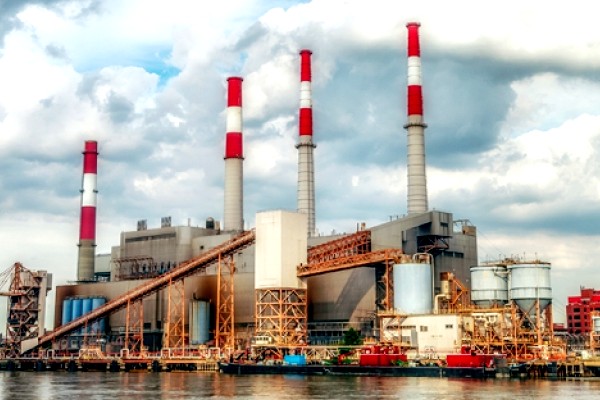 Governor Hochul’s proposed budget includes several key provisions that will help New York slash the source of one-third of our greenhouse gas emissions.
Governor Hochul’s proposed budget includes several key provisions that will help New York slash the source of one-third of our greenhouse gas emissions.
Fossil fuels are being burned in buildings for heating, cooking, and hot water. Now, the Governor and the Legislature must go much further and much faster to ensure that New York meets our climate targets and that every New Yorker can afford to end their reliance on fossil fuels.
The Renewable Heat Now campaign urges Governor Hochul and legislative leadership to include the provisions of the All-Electric Building Act in the state budget, which would ban fossil fuels in new buildings by 2024 rather than 2027.
The Campaign also calls for at least $1 billion per year for the electrification of affordable housing to be included in the State Budget, and for Senate Majority Leader Andrea Stewart-Cousins and Assembly Speaker Carl Heastie to pass the entire Renewable Heat Now legislative package immediately to stop the expansion of fossil fuels, to ensure that renewable heat is made more affordable, and to create an equitable plan to phase out fossil fuels once and for all.
“After Governor Hochul’s administration denied two fracked gas power plants in late 2021 and praised renewables in her State of the State, we expected urgent climate action in the budget,” said Kim Fraczek, Director of Sane Energy Project. “Her proposed timeline and allocation of New Yorker’s hard-earned money to protect our communities and climate just don’t measure up yet.”
Advocates are encouraged to see Governor Hochul include the Advanced Building Codes, Appliance and Equipment Efficiency Standards Act and the Building Benchmarking Act of 2022 in the Executive Budget. The benchmarking bill would enact benchmarking of building energy and water data for large buildings.
The building codes bill would increase the state’s efficiency standards for appliances and equipment. Advanced appliance efficiency standards would save consumers more than $15 billion on their energy bills by 2035 and slash greenhouse gas emissions.
These bills would also remove current barriers to building decarbonization by authorizing the NYS Codes Council to improve the codes by considering greenhouse gas emissions reductions and adopting energy savings measures.
Governor Hochul’s Executive Budget also proposes a ban on fossil fuels in new construction no later than 2027, but this timeline is too slow to meet New York’s climate targets. Renewable Heat Now is calling on Governor Hochul and legislative leadership to pass the All-Electric Building Act (S6843A/A8431), which would ban fossil fuels in new buildings no later than 2024.
“The Mothers Out Front Long Island Team is delighted that Gov. Hochul is more proactive than her predecessor when it comes to addressing our climate crisis. However, we believe her timeline can be accelerated responsibly. Now it’s up to the Senate and Assembly to move this process forward by passing the Renewable Heat Now legislative package that encourages and fast-tracks electrification in an equitable, efficient and well-planned manner,“ says Millie Natal. “The climate–and our kids–can not wait.”
“Governor Hochul has taken some critical steps in her Executive Budget to put us on a path to healthy, fossil-fuel-free buildings, but we need to be as ambitious as possible to meet New York’s emissions targets,” said Betta Broad, Campaign Director for New Yorkers for Clean Power. “As the State’s own analysis makes clear, we cannot wait until 2027 to electrify new construction, and we urge the Governor and the Legislature to pass the All-Electric Building Act (S6843A/A8431), which would ban fossil fuels in new buildings no later than 2024.”
Advocates are also encouraged by the provision in the Governor’s budget which would weaken the “100-foot rule,” a requirement for all gas customers to subsidize the first 100 feet of pipeline needed to connect new buildings to the gas system.
Governor Hochul’s budget would authorize the Public Service Commission (PSC) to require building developers to absorb this cost instead, which would incentivize developers to consider more sustainable alternatives like heat pumps.
Governor Hochul also proposes a modification of the Public Service Law to enable gas and electric utilities to own, operate, and manage geothermal loop systems.
This could enable gas utilities to transition away from a fossil-fueled business model that is causing deadly and economically crippling climate disasters across our world.
Community geothermal systems, which can capture and condense heat from the ground, bodies of water, factories, and other heat sources, can be a key tool for transitioning away from the gas system equitably, affordably, and at scale. This could also enable a transition for gas utility workers.
Many of the same skills gas utility workers already have will be needed to install geothermal pipes that carry heated or cooled water instead of gas.
“We are thrilled to see major commitments to the climate action we advocated for with respect to building electrification coming from the Governor’s office. The momentum for clean, green, healthy buildings in New York is tremendous,” said Lisa Marshall of Mothers Out Front. “We were particularly excited to see the changes to the Public Service Law that have been a barrier until now. But the devil as always is in the details. The funding has to be in place and we need a transition plan that makes sense.”
Governor Hochul did not include enough funding to make building electrification affordable for low-income and disadvantaged communities in the budget.
Governor Hochul made a commitment in her State of the State to electrify 1 to 2 million homes by 2030, but has only allocated $250 million total for weatherizing and electrifying 50,000 homes over 5 years.
This year’s budget must include significantly more funding to remove enough fossil fuels from buildings to meet the State’s legally mandated climate goals.
The State’s Climate Action Council has identified that 1.5-1.8 million buildings need to be electrified by 2030 to meet the state’s mandates.
Advocates urge Governor Hochul and the Legislature to make a commitment of at least $1 billion annually to fund all-electric affordable housing in and for Disadvantaged Communities.
“The Governor has the power to do far more for climate issues in the budget than we’re seeing here,” says Avni Pravin of Alliance for a Green Economy. “We are pleased to see her commitment to electrifying homes with $250 million, but we know that much more needs to be allocated to this effort if we’re going to prioritize low-income households in the process. The climate crisis demands that we do as much as humanly possible as fast as possible to prevent loss of life. We can’t wait until 2027 to stop heading in the wrong direction – we need to ban fossil fuels in new buildings by 2024 at the latest.”
Governor Hochul’s budget currently has a surplus of $21 billion over the next four years. Given the urgency of the climate crisis, affordable housing crisis, healthcare crisis, and many other crises New York faces, this funding must be used. Mitigating the climate crisis now will save billions of dollars and countless lives in the long run.
To make installing renewable heating options like ground-source (geothermal) and air-source heat pumps truly affordable, Renewable Heat Now also urges the passage of the Fossil-Free Heating Tax Credit (S3864/A7493) and Sales Tax Exemption bills (S642A/A8147) as part of the budget process.
Bill Nowak from the NY Geothermal Energy Organization (NY-GEO) notes: “Governor Hochul’s budget continues to affirm her message that fossil fuels have no future as NY State takes its mandated climate goals seriously.
She has put an outside date of 2027 on fossil fuel heating and appliances in new builds. NY-GEO supports the concept and urges the adoption of the quicker and more definitive date of 2024 contained in the Kavanagh/Gallagher bill.
It is also crucial that the geothermal tax credit and sales tax exemption bills be included in the final budget, as these would put our most efficient zero-emission heating technology on equal footing, incentive-wise, with solar panels. Solar electric and geothermal heating and cooling are our best combination for building owners to beat the climate challenge.”
Advocates are also concerned to see Governor Hochul’s proposal to turn New York State into a “Green Hydrogen Hub.” While green hydrogen does have some uses for energy storage and hard-to-electrify industries like aviation and heavy-duty transport, green hydrogen is extremely expensive and is a false solution for the heating sector. It is being pushed by the fossil fuel industry and gas utilities so that we will be forced to rely on their pipelines and infrastructure. Instead, Governor Hochul should invest in more cost-effective heating solutions like air-source and ground-source heat pumps.
The budget also did not include several other prominent climate measures that climate activists have been pushing for, including proposals for building public renewable energy projects, a moratorium on energy-intensive cryptocurrency mining, scaling back New York’s $1.6 billion in annual fossil fuel subsidies, and increasing climate justice investments to at least $15 billion per year.
Renewable Heat Now is a campaign dedicated to accelerating the adoption of ground-source (geothermal) and air-source heat pumps in New York to reduce the number of fossil fuels used to heat and cool our homes and workplaces.
It is organized by Alliance for a Green Economy, New Yorkers for Clean Power, NY-GEO, HeatSmart Tompkins, Fossil Free Tompkins, Sane Energy Project, Frack Action, Pace Energy and Climate Center, Network for a Sustainable Tomorrow, Earthjustice, Mothers Out Front, NYPIRG, Climate Solutions Accelerator of the Genesee-Finger Lakes Region, Acadia Center, Food and Water Action, Sierra Club Atlantic Chapter, and All Our Energy.
Become a Harlem Insider!
By submitting this form, you are consenting to receive marketing emails from: . You can revoke your consent to receive emails at any time by using the SafeUnsubscribe® link, found at the bottom of every email. Emails are serviced by Constant Contact








